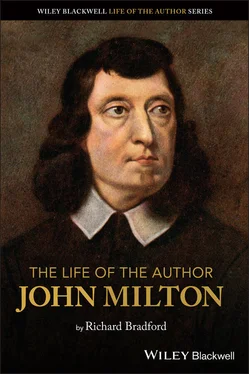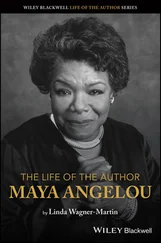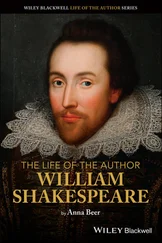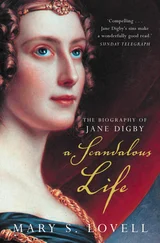The most important section of Comus is lines 558–812, in which The Lady is ‘set in’ and apparently unable to remove herself form ‘an enchanted chair’. It is made up of a dialogue between The Lady and Comus, who appears to have entrapped her in a fantastic, enchanted realm. Comus is attempting to seduce her and the following are examples of his rhetorical technique:
If all the worldShould in a pet of temperance feed on pulse,Drink the clear stream, and nothing wear by frieze,The All-giver would be unthanked, would be unpraised,Not half his riches known, and yet despised .
(719–23)
Beauty is nature’s coin, must not be hoarded,But must be current, and the good thereofConsists in mutual and partaken bliss,Unsavoury in the enjoyment of itself.It you let slip time, like a neglected rose It withers on the stalk with languished head
(738–43)
The passages are significant because they transcend their immediate context and involve Milton in an engagement with contemporary poetic and social conventions. They invite comparison with the amatory mode of Metaphysical poetry in which the male addresser makes use of his considerable stylistic and referential abilities to persuade the female addressee of something; frequently that sex with him is entirely consistent with God’s design for the universe and the status of human beings within it. Comus argues that nakedness is God’s gift and that He would be ‘unthanked’ if it were not fully appreciated and indeed made use of ‘in mutual and partaken bliss’. Beauty is transient and will ‘like a neglected rose’ wither if not enjoyed. These strategies are almost clichés and are abundant in Donne’s ‘The Flea’ and ‘The Ecstacy’ and in Marvell’s ‘To His Coy Mistress’. But while Donne’s and Marvell’s addressees remain silent and, one assumes, enchanted, Milton allows The Lady to reply:
I had not thought to have unlocked my lipsIn this unhallowed air, but that this jugglerWould think to charm my judgement, as mine eyes,Obtruding false rules pranked in reason’s garb .
(755–8)
The closing line of this extract is remarkable: ‘false rules pranked in reason’s garb’ is a succinct and unambiguous rejection of the tendency in the verse of the Metaphysicals for the use of figurative language as a means of undermining the customary perceptions of the listener. During John Donne’s lifetime his poems circulated only in manuscript form among the London-based literary intelligentsia. We have no proof that Milton had read any of them but given his sense of his own role as part of the burgeoning new age of English writing it is difficult to imagine that he did not avidly seek out the verses of the man he’d heard preach in the cathedral attached to his school. Most significantly, Donne’s poems went into print in 1633, roughly seven months before Milton began work on Comus and we can take it as a given that Milton was confident that most, if not all of his audience, members of the aristocratic and cultural elite, would have obtained copies of the work of the secular alter-ego of the Dean of St Paul’s. It is of course impossible to claim any knowledge of what was going through Milton’s mind when he composed Comus but, knowing the circumstances, we might be forgiven for suspecting that he was inviting his audience to compare his masque with the ingrained habits of his immediate creative forebears. Consider, for example, Donne’s ‘The Flea’, reckoned to be popular among his peers and a work that typifies the defining features of Metaphysical verse. In three stanzas the male speaker attempts to seduce his female listener, using the eponymous flea as the foundation for a bravura performance in twisting and turning a metaphor back and forth. First he compares her reluctance to submit to his desires with the insect, an insignificance. Next, when she attempts to swat it, he treats it as symbolic of their unity; it has bitten them both and united their blood. Finally, when she succeeds in killing it, he proposes that its disappearance means nothing compared with their enduring love. The woman never speaks. We know, by implication from the man’s words, of her acts and opinions but we listen only to him. Aside from anything else it is a lesson in the proprietorial conventions of verbal dexterity. Men speak, invent, persuade, and women listen. Milton’s Lady answers back and stops Comus in his rhetorical tracks. The passage is an unrecognised crossroads in literary history; for the first time the woman takes control of the direction of the mood and plot of the work. Milton, I would argue, was inviting his audience to compare the battle of the sexes on this stage with a pre-decided contest in literature everywhere else. Would his audience have detected the allusion, the invitation to compare the performance with their acceptance of a norm? The fact that it was so radical a gesture indicates only one response: yes. Consider Samuel Johnson’s famous dismissal of Metaphysical and Renaissance drama technique: ‘their learning instructs and their subtlety surprises; but the reader commonly thinks his improvement dearly bought …’ (Johnson 1779–81). ‘His’ improvement might be dearly bought by figurative excess, but what about hers? The Lady continues,
Thou hast not the ear nor soul to apprehendThe subtle notion, and high mysteryThat must be uttered to unfold the sageAnd serious doctrine of Virginity …Enjoy your dear wit and gay rhetoric That hath so well been taught her dazzling fence Thou art not fit to hear thyself convinced .
(783–91)
There are very few women in Renaissance literature who use language with such confidence and authority as Milton’s Lady. Most importantly she removes any doubt that Milton had absorbed and reflected on key passages in his edition of Shakespeare’s 1623 Folio and was determined to demonstrate his intellectual and moral superiority to his predecessor. Portia in The Merchant of Venice and Isabella in Measure for Measure are clever and effective advocates for their respective causes but their status is undermined by the fact that the former is only listened to when disguised as a man and the latter, irrespective of her intellectual capacities, is a pawn in a male-dominated game. Would the audience of Comus have seen Shakespeare’s plays? Some would. After Shakespeare’s death, performances continued in the capital with audiences ranging from the semi-literate artisan classes to the upper gentry. Let us then assume that a reasonable numbfer of the Ludlow audience would know something of Measure for Measure and that they would recognise Milton’s implicit invitation to compare what they were seeing with what had already become a contemporary classic. There is a passage in Act II, scene ii, where Isabella, novitiate nun and sister of Claudio, argues with Angelo over the ethical and judicial validity of her sibling’s death sentence. Lucio, friend of the latter and resourceful opportunist, stands at her shoulder, offering confidential encouragement and advice, rather in the manner of a theatre director.
Isabella We cannot weigh our brother with ourself: Great men may jest with saints; ‘tis with in them, But in the less foul profanation. Lucio (Aside to Isabella) Thou’rt i’ th’ right girl: more o’ that. Isabella That in the captain’s but a choleric word Which in the soldier is flat blasphemy . Lucio (Aside to Isabella)) Art advis’d o’that? More on’t . Angelo Why do you put these sayings upon me? Isabella Because authority, though it err like others Hath yet a kind of medicine in itself That skins vice o’ the top. Go to your bosom; Knock there and ask your heart what it doth know
(126–37)
Isabella and Angelo, as befits their social rank, conduct their exchange in blank verse, marshalling orotund figurative devices to service their opposing arguments. Lucio, the pragmatist, comments to her in an unkempt colloquial manner.
Читать дальше












